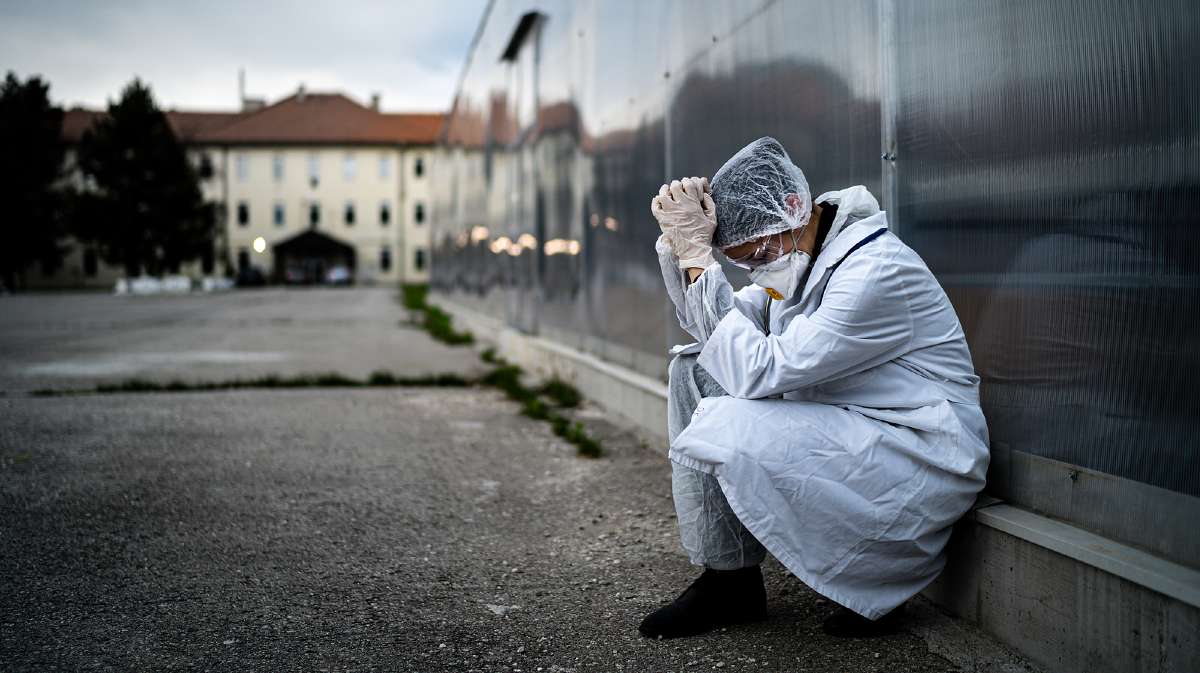
Ethicists propose standards for Covid-19 triage
Decisions about triage give too little consideration to moral problems
With a second wave of Covid-19 sweeping through Europe and the United States, threatening to overwhelm hospital ICUs, discussion of triage is again coming to the fore.
“A lack of intensive care ventilation units owing to rapidly increasing infection rates numbers among the most significant nightmare scenarios of the corona pandemic,” says Mathias Wirth, of the University of Bern (Switzerland), because: “Shortages of supply can result in triage of patients suffering from severe cases of COVID-19 and thus force a life or death decision.”
Together with experts from Yale University, King's College London, Charité Berlin and Essen University Hospital, Wirth has prepared a statement on these difficult decisions in the American Journal of Bioethics (AJOB).
The experts warn against prematurely implementing triage; even though triage allows for decisions based on fairness in extreme situations, it leads to significant strain on the affected parties, relatives and medical personnel. They write:
It is unbearably difficult for a patient and their families and friends not to interpret a classification based on specific triage criteria as a moral judgment about the worth of an individual life. How can the unsubstitutable dignity of each and every individual be affirmed even as resources are given to some people and not to others?
In order to avoid it, every effort must be made to transfer seriously ill patients to other hospitals without shortages of supply – across country borders in case of emergency, according to the authors.
The authors recommend increased regional, national and even international collaboration in intensive care for Covid-19 patients in preparation for future waves of infection. “Just because triage is correct under some circumstances does not mean that it is correct under all circumstances,” says Wirth. “There is no real and legitimate triage situation as long as treatment spaces are available elsewhere.”
Secondly, a negative triage decision for individual people should not under any circumstances mean that their medical and psychological care is neglected. Quite the opposite: If they are deprived of a ventilator, maximum effort is required for their care and treatment, both for them and for their relatives.
Decisions about triage give too little consideration to moral problems, according to the authors. “The suffering that triage decisions involved for patients, relatives and medical personnel in the epicenters of the first wave attests to this,” says Wirth. With these recommendations, triage planning can be classified more clearly as a last resort, meaning that alternatives must be afforded greater attention.
Michael Cook is editor of BioEdge
Creative commons
https://www.bioedge.org/images/2008images/triage_3453534534.jpg
covid-19
triage
- How long can you put off seeing the doctor because of lockdowns? - December 3, 2021
- House of Lords debates assisted suicide—again - October 28, 2021
- Spanish government tries to restrict conscientious objection - October 28, 2021
